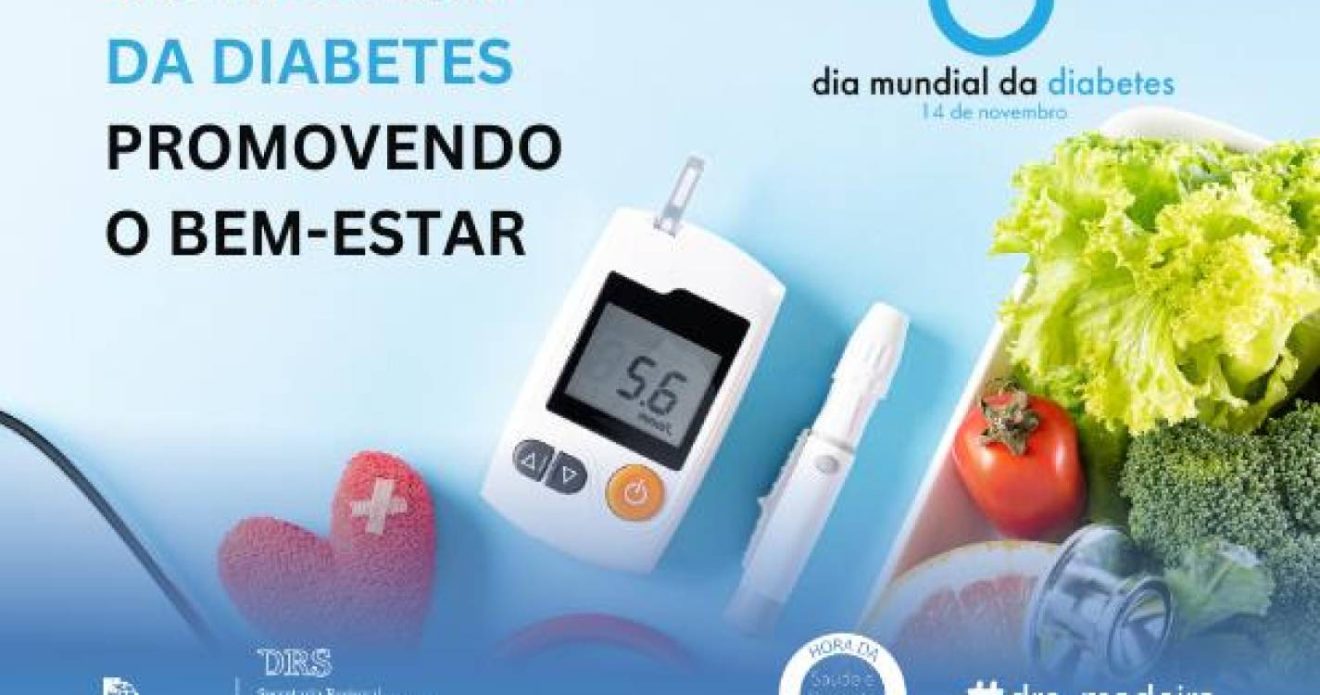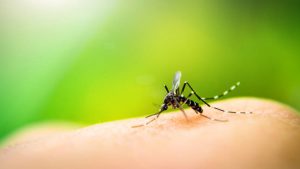World Diabetes Day (WDD) is celebrated on the 14th of November. A date established by the International Diabetes Federation (IDF) with the support of the World Health Organisation (WHO), in response to growing concerns about the economic and health threat posed by diabetes, being recognized by the United Nations through General Assembly Resolution 61/255, on the 20th of December 2006.
WDD provides an opportunity to raise awareness of diabetes as a relevant global public health problem and emphasize the importance of implementing collective and individual actions aimed at improving the prevention, diagnosis, and management of the disease.
Regarding numbers, worldwide, about 537 million people are suffering from the disease, and 6.7 million deaths, according to 2021 FID data. The number of people suffering from Diabetes is expected to rise to 592 million by 2035.
In Portugal, according to the annual report of the National Diabetes Observatory (2023), in 2021 the estimated prevalence of Diabetes in the Portuguese population aged between 20 and 79 years (7.8 million individuals) was 14.1%, corresponding to about 1.1 million Portuguese in this age group who have Diabetes.
In the Autonomous Region of Madeira, according to the last National Health Survey with Physical Examination (INSEF 2015), it estimated a prevalence of Diabetes of 10.9%.
Worldwide Campaign
For the 2024-2026 triennium, FID has proposed as the theme of its campaign “Diabetes and Well-being,” emphasizing the movement towards change in diabetes treatment that will improve the daily life and well-being of those living with the disease. It highlights the millions of people who daily live with diabetes and suffer from the weight and consequences of the disease, highlighting the importance of prioritizing their physical and mental well-being.
In 2024, WHO proposes the theme “Breaking Barriers, Bridging Gaps,” underpinning the commitment to reduce the risk of diabetes and to ensure that all people diagnosed with the disease have access to equitable, comprehensive, accessible, and quality treatment and care. For a better life with Diabetes – reducing the burden of the disease, Living with Diabetes impacts the physical and mental well-being of millions of people, and life expectancy. Diabetes can be treated and its consequences avoided or delayed with medications, medical consultations, regular checkups, and treatment for the complications of the disease.
About 70% of cases of type 2 diabetes – a behavioural disease – result from obesity and a sedentary lifestyle. Unhealthy eating habits and sedentary lifestyles associated with urbanization are common factors that contribute to the development of type 2 diabetes. Thus, the need to address the risk factors of non-communicable diseases is recognized, through lifestyle changes that take into account the environmental, cultural, and socio-economic determinants of health problems.
To prevent and manage type 2 diabetes, DRS recommends adopting a healthy lifestyle, reducing the individual risk of diabetes:
– Adequate weight: Achieve and maintain a healthy body weight;
– Active life: Stay physically active with at least 30 minutes of moderate exercise per day;
– Healthy eating: Reinforce the consumption of fresh fruits and vegetables, whole grains and vegetables, avoiding the intake of products high in sugars, salt and saturated fats;
– No alcohol and tobacco: No smoking and limit the consumption of alcoholic beverages.
“DRS joins World Diabetes Day, inviting all people to prioritise their well-being and adopt a healthy lifestyle.”
Samantha Gannon
info at madeira-weekly.com
Views: 4







